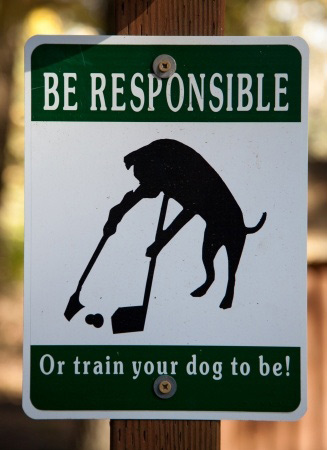HOAs: How to Communicate Responsibilities to Homeowners
Oftentimes, it can be difficult for HOAs to delineate between the responsibilities of a property management company and its homeowners.
Although the property management company is contracted to help take care of the property, much of the responsibility continues to fall on residents’ shoulders.
In our previous blog post, we laid out the responsibilities of each party in keeping up a property so that it retains its property value and remains a desired place to live/work.
In this post, we’ll examine some of the responsibilities of homeowners and residents and how you can communicate those expectations to your community.
Communicating Homeowner Responsibilities
1. Picking up after pets.
It’s a messy business, but it’s got to be done. The city, the county, and the state all have laws that requires dog owners to pick up after their pets. Pet waste isn’t just unsightly; it causes public safety hazards like spreading parasites and contaminating water sources. To get residents to adhere to this law here are some ideas:
- Communicate the law to residents by sending a mailing and posting signs outside.
- Install pet waste stations on your property and keep them stocked with waste bags.
- Set up a camera to catch the offender in the act and levy HOA fines in addition to city fines.
- Investigate a program that allows you to DNA-match dog poop to the offending animal.
- If the problem is with cats, follow some of these tips to keep cats out of plantings.
2. Building cleanliness.
Property management companies contract with a cleaning company to regularly maintain common areas like foyers, lobbies and common kitchens. But those cleaning crews only come at a regularly scheduled time, so residents are responsible for picking up after themselves. Here are a few ideas to encourage tenants to keep the property clean for everyone:
- Provide multiple, large rugs for wiping feet at every entrance.
- Post signs encouraging residents to clean up after themselves in areas with the most significant problems.
- Institute a positive reinforcement system. Appoint “cleanliness monitors” and give them some sort of prize to hand out to residents “caught in the act” of cleaning up after themselves.
3. Trash in recycle bins and recycling in trash bins.
If an entire bin of recyclable items is contaminated by trash such as food waste, it often won’t get picked up and may no longer be eligible for recycling. This creates even more mess on the property and disgruntled tenants. To make sure residents are sorting their trash from the recyclables correctly, try these tips:
- Make sure the type of receptacle is easy determined. Clearly label the bins with signs; make sure they’re different colors; etc.
- Incentivize the behavior. Institute a program so that the property will receive a desirable improvement if residents can sort their items correctly for a determined amount of time (i.e. one month).
4. Litter.
No one likes a litterbug! Litter has a negative impact on the environment and on the aesthetics of your property. Try these tips to curb the litterbugs on your property:
- Order signs from Tennessee’s anti-litter campaign to post on your property.
- Install cigarette receptacles around the property, if the litter is comprised of cigarettes.
- If the problem is severe, consider installing cameras to catch litterbugs in the act.
- If much of the problem occurs overnight, install motion-sensor lights around the property.
5. Vandalism.
Vandalism, including graffiti, is a crime, not just a nuisance. To discourage vandalism on your property, consider some of these steps:
- Hire a security guard at night. If necessary, pool resources with neighboring properties to share the expense.
- Install security cameras. Make sure they can record video in the dark.
- Install a security system that may include alarms, cameras, motion-sensor lights and the like.
- Work closely with the police to investigate each instance and prosecute when possible.
6. Free newspaper circulars.
Because residents are responsible for their own correspondence, whether it arrives in the mailbox or the driveway, help tenants manage free newspaper circulars with some of these tips:
- Educate residents that the newspapers are their responsibility, via letters or email.
- Call the distributor and ask them to stop delivering the circulars.
- Make sure your HOA guidelines address the problem and issue citations to those who don’t comply with the guidelines.
Hopefully, these tips will help your HOA address some of the common property issues your homeowners and residents face every day.

About Ryan Edwards
Ryan Edwards is the owner and property manager for EZR Management. He founded the company in 2006, building on his years of experience managing and renting properties.
